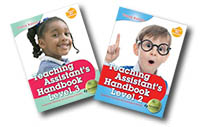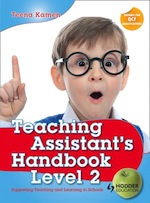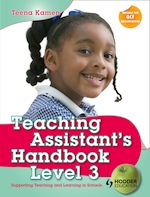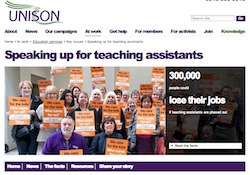Jane Fletcher runs a business from home and is a part time teaching assistant. She has written a guest post demonstrating how she used detailed observation to discover how the iPad is affecting her son’s activities.
“My 3 year old son is playing happily with his cars and trucks, making vocal noises as they crash into each other and tip over the edge of the card box he’s using as a makeshift city. I’m getting on with some paperwork but glancing over at the imaginative events. He skips over to me and politely offers me a car, hoping I’ll join in. I welcome the break from the tediousness of my work and allow him to delicately take me by the hand to have some fun.

Last week wasn’t as blissful. Tuesday afternoon was filled with tearful tantrums, physical violence and a disinterest in all things normal to my son. You see, he had been using my iPad for a few hours. Like thousands of parents out there, I have allowed my son to use my iPad once or twice a week when I’ve needed to get on with the washing up, ironing or other tasks around our house. This has been the norm for about 10 months, after we discovered his amazing ability to interact with the apps, photos, games and YouTube videos. He would navigate through screens and buttons as easily as his ability to breathe. He would intuitively open new apps and work through puzzles and other activities without needing our help.
And so I would leave him to browse through the mass of YouTube children’s videos and listen to him chuckling happily, peeking in every now and then to vet the content he watched. I was comfortable with him becoming computer literate as early as possible to give him the best start, unlike his mother (I still can’t set up emails and Facebook accounts without help from my husband!). I had also read recently that a local secondary school head teacher had been promoting the use of iPads throughout lessons, so decided my son would benefit from getting used to tablets at an early age. The usage was never daily, he only really used it once or twice a week, but gradually the separation from the tablet was becoming too much for him to cope with.
Last week he had been watching a YouTube clip for a matter of minutes when I realised I had an appointment to keep, which meant we had to leave the house sharpish. Interrupting his interaction with the iPad led to an almost agonising wail followed by the first violent behaviour I had seen from him. He lashed out, screaming and kicking, leaving me shocked and worried. My son was acting like a crazed, addicted animal!
I’m a part time teaching assistant, so I’ve learnt to be observant around children in order to pick up on signs that others are unlikely to see. I decided to keep a record of my son’s behaviour after using the iPad and compare it to his normal behaviour. The results were astounding and has led me to believe that many children are now in danger of long term psychological damage, unbeknown to their parents (toddlers requiring therapy – The Telegraph). I allowed him to use the iPad for an hour one day during the morning, then monitor his behaviour in the afternoon. The next day I monitored his afternoon behaviour without the use of the iPad in the morning. I repeated this series a few times and these were the main results after using the iPad in the morning:
- His concentration deteriorated when performing simple tasks such as stacking blocks to build a tower. Normally he would happily build for around 10 – 15 minutes without being distracted. This was reduced to a few minutes before becoming bored and restless.
- His imagination became limited. Normally he can draw using multiple colouring pens and can create imaginative pictures. After using the iPad, he would become agitated at being left to perform a task on his own and would require intervention from me in order to think of what next to draw.
- His activities became fickle. He changed his mind frequently about what he wanted to do – starting to play with his cars, then running over to play with his bricks and then back again in a matter of minutes. I’ve seen this behaviour with the iPad – my son flits from one app to another and very rarely lets a video play in its entirety before being distracted with a new video in the menu.
- He became less interactive with his surroundings, almost in a trance. Calling his name didn’t always get a response!
My son’s behaviour really demonstrates that although digital technology is innovative, advanced and can be a perfect educational tool (my son HAS learnt loads from using it), toddlers shouldn’t be encouraged to use devices on their own, no matter how adept they are. It’s so tempting to leave them to discover iPad wonders such as interactive cats and dogs, digital jigsaw puzzles and CBeebies on BBC iPlayer, but it’s best to leave them to their own imagination without any restrictions. Let them build Lego houses and drive their toy cars along makeshift roads. We don’t know the long term effects of young children using iPads, simply because they’ve not been around long enough. I’ve seen the effects of excessive use of televisions in households and I suspect the introduction of tablets and smartphones at an early age will be far worse in the long term.”
 To coincide with UNISON’s celebratory day for teaching assistants on 29th November 2013, we’re offering TWO winners the chance to win QCF teaching assistant study books. Hodder Education have generously provided Teaching Assistant’s Handbook for Level 2 and Teaching Assistant’s Handbook for Level 3, worth £22.99 each, for each lucky winner.
To coincide with UNISON’s celebratory day for teaching assistants on 29th November 2013, we’re offering TWO winners the chance to win QCF teaching assistant study books. Hodder Education have generously provided Teaching Assistant’s Handbook for Level 2 and Teaching Assistant’s Handbook for Level 3, worth £22.99 each, for each lucky winner.


 A date for your diary – 29th November 2013. This is the date UNISON, one of the largest education unions, has set aside for the celebration of teaching assistants. Although the Department of Education have specified teaching assistants will not be phased out (
A date for your diary – 29th November 2013. This is the date UNISON, one of the largest education unions, has set aside for the celebration of teaching assistants. Although the Department of Education have specified teaching assistants will not be phased out ( After the news of the Government culling teaching assistants across the UK, petitions were started to encourage parents, teachers, other teaching assistants and, well, everyone to sign up and fight against the decision. Cherryl Drabble, a teacher, who set up the ‘SAY NO TO REMOVAL OF TEACHING ASSISTANTS’ petition would really like as many numbers as possible. Therefore, please visit her petition and sign. If you wish to spread the word, she has put together the following email to use:
After the news of the Government culling teaching assistants across the UK, petitions were started to encourage parents, teachers, other teaching assistants and, well, everyone to sign up and fight against the decision. Cherryl Drabble, a teacher, who set up the ‘SAY NO TO REMOVAL OF TEACHING ASSISTANTS’ petition would really like as many numbers as possible. Therefore, please visit her petition and sign. If you wish to spread the word, she has put together the following email to use: